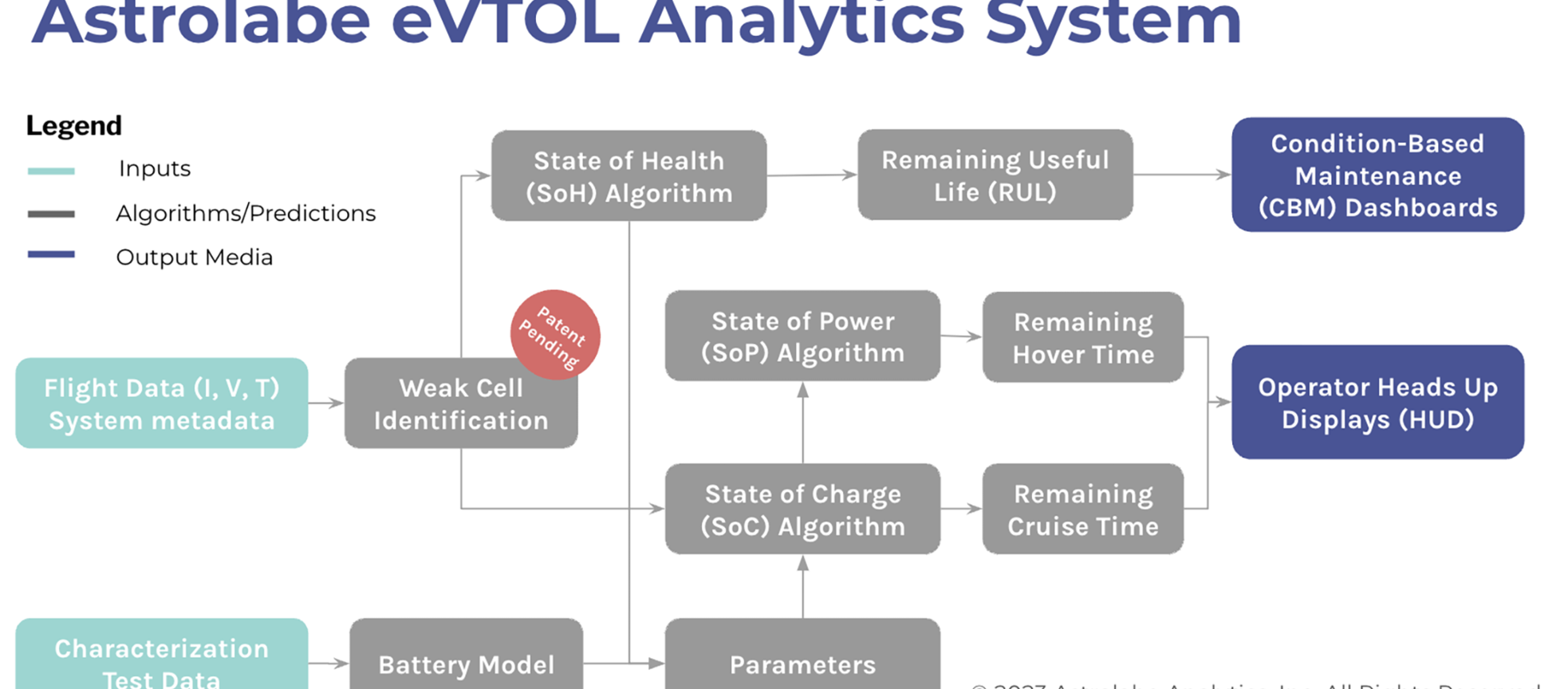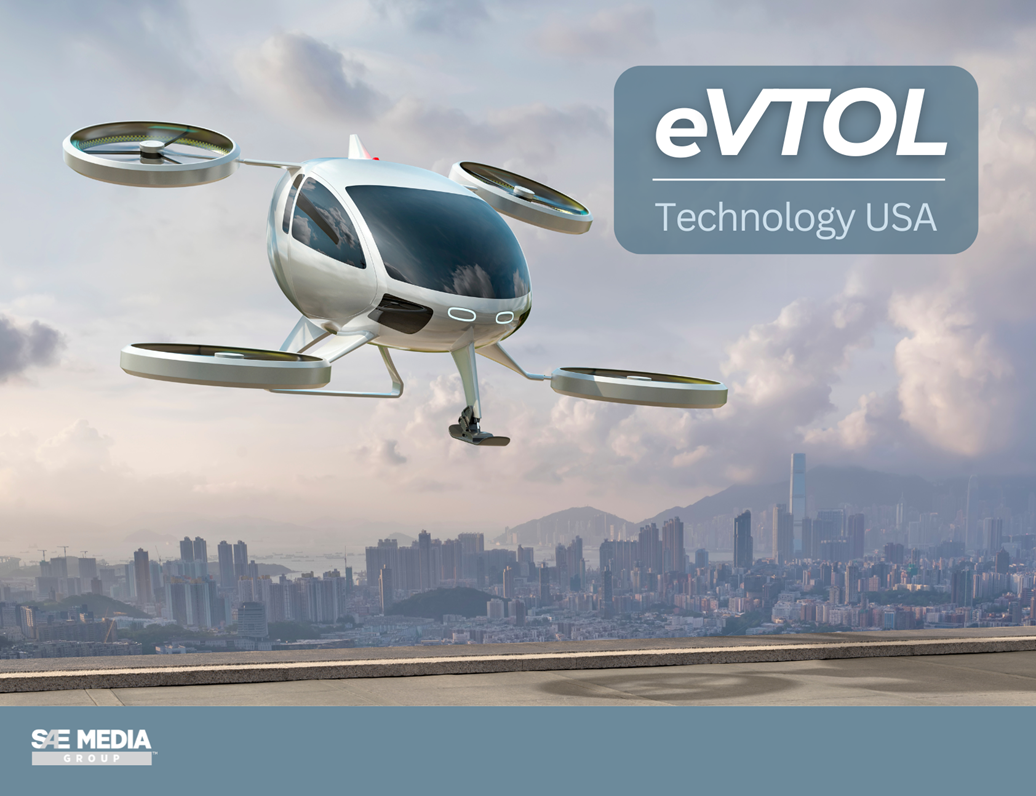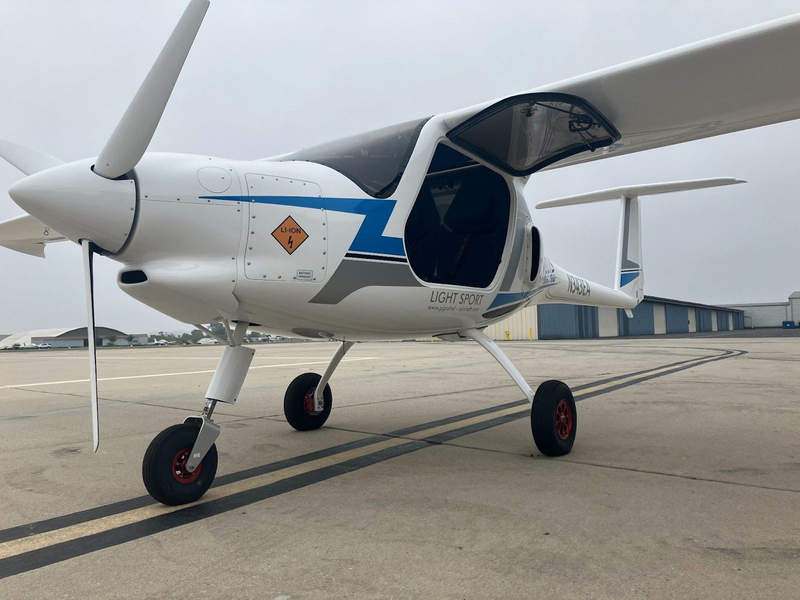
Astrolabe Analytics is developing a data-driven software solution for battery health monitoring and predictive maintenance.
Much like the lithium-ion batteries that power our smartphones, the batteries that will power electric aircraft are destined to degrade over time. For smartphone users, battery performance issues after a few years of use might indicate that it’s time to replace your device. But for electric aircraft operators, deciding when to replace aging batteries is a far more convoluted task—one that will require regulatory oversight due to the safety-critical nature of aviation.
To help eVTOL developers and air safety regulators analyze and predict aircraft battery performance, Seattle-based start-up Astrolabe Analytics is developing a software system that combines data management techniques with artificial intelligence (AI) and machine learning. It uses voltage data supplied by an aircraft’s onboard battery management system to analyze each battery pack’s performance down to a cell level, allowing operators to identify weak cells before they begin to compromise the battery’s performance and safety.
The secret sauce in Astrolabe’s patent-pending system is a set of algorithms that identify outliers in voltage data features and then use computer models to predict how a battery will perform over time. This enables early detection and prevention of battery failures. Conversely, the algorithms might indicate that a battery is outperforming expectations and doesn’t need to be replaced simply because it has hit a somewhat subjectively determined expiration date, Astrolabe founder and CEO Robert Masse told AIN. Battery developers and manufacturers could also use this data for warranty assurance and quality control purposes, he said.
Much like the lithium-ion batteries that power our smartphones, the batteries that will power electric aircraft are destined to degrade over time. For smartphone users, battery performance issues after a few years of use might indicate that it’s time to replace your device. But for electric aircraft operators, deciding when to replace aging batteries is a far more convoluted task—one that will require regulatory oversight due to the safety-critical nature of aviation.
To help eVTOL developers and air safety regulators analyze and predict aircraft battery performance, Seattle-based start-up Astrolabe Analytics is developing a software system that combines data management techniques with artificial intelligence (AI) and machine learning. It uses voltage data supplied by an aircraft’s onboard battery management system to analyze each battery pack’s performance down to a cell level, allowing operators to identify weak cells before they begin to compromise the battery’s performance and safety.
The secret sauce in Astrolabe’s patent-pending system is a set of algorithms that identify outliers in voltage data features and then use computer models to predict how a battery will perform over time. This enables early detection and prevention of battery failures. Conversely, the algorithms might indicate that a battery is outperforming expectations and doesn’t need to be replaced simply because it has hit a somewhat subjectively determined expiration date, Astrolabe founder and CEO Robert Masse told AIN. Battery developers and manufacturers could also use this data for warranty assurance and quality control purposes, he said.












